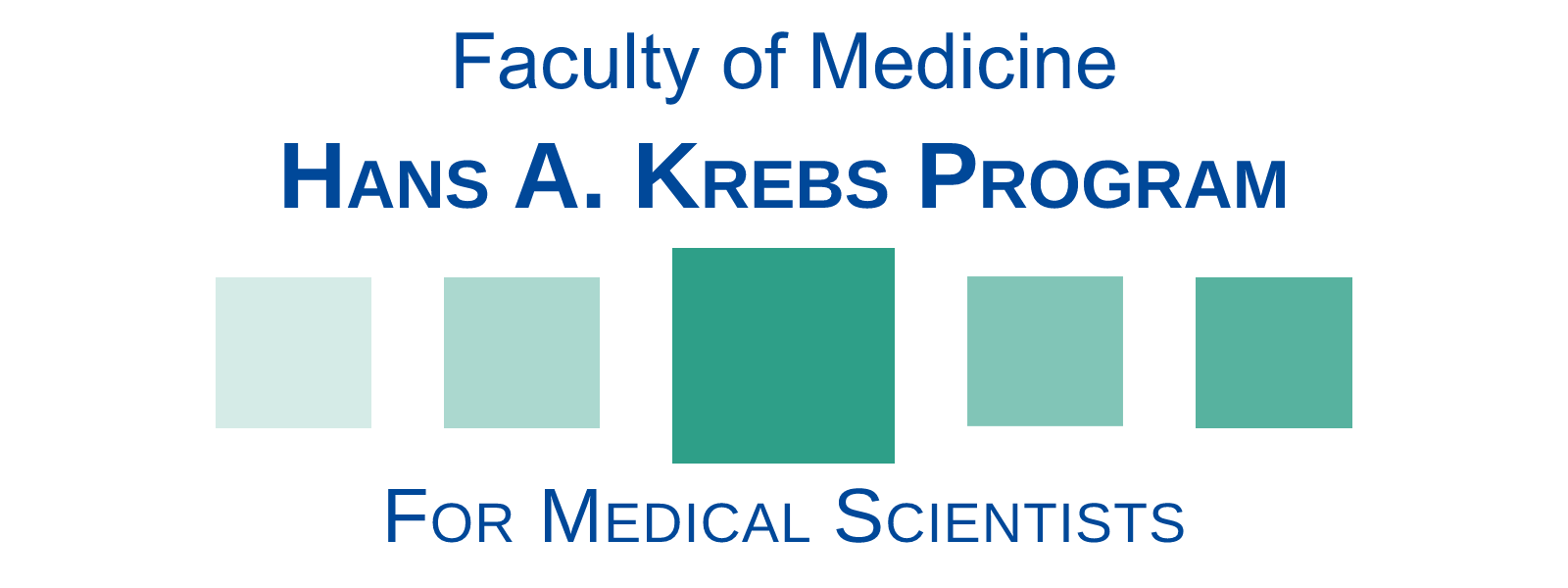Hans A. Krebs Medical Scientist Program
Currently there is no open call.
If you would like to receive information regarding further calls please write to the program coordination office: E-Mail
The Hans A. Krebs Medical Scientist Program of the Faculty of Medicine offers young outstanding postdocs without clinical duties opportunities to establish themselves as independent scientists. The program aims to further develop a continuous and structured career path for scientists within Freiburg’s University Medicine.
While the Berta-Ottenstein-Program provides support for exceptional Clinician Scientists looking to combine a clinical and scientific career, the Hans A. Krebs Medical Scientist Program offers funding for excellent Medical Scientist from the medical, technical, mathematical or life sciences, who are not pursuing clinical training.
With this program, the Faculty of Medicine specifically aims at supporting Medical Scientists whose scientific projects have a clear focus on translational research. Translation is a process connecting basic and disease-oriented research with clinical application (including diagnostic, therapeutic or preventive measures). It includes both forward and reverse translation. The program fosters translational research collaborations by specifically funding Medical Scientists and building bridges between basic and clinical science as well as by using tandem mentoring, offering targeted qualification, and organizing networking events with Clinician Scientists.
The program aims to support outstanding scientists and builds on the strengths and specialties of Freiburg as a well-known research site. It guarantees individualised supervision and mentoring as well as a qualification program tailored to the applicants’ needs.
The focus of the program is set on promoting Medical Scientist from the medical, technical, mathematical or life sciences, who are not pursuing clinical training and are working at the medical-theoretical institutes (preclinical), the clinical-theoretical institutes or at the specialist clinics of the Faculty of Medicine. Funding is not aimed at established scientists who have already completed their habilitation.
Eligible candidates are excellent doctorate-holding researchers without responsibilities in patient care who are not pursuing fellowship training in a clinical discipline (Medical Scientists). They should ideally be in their first postdoctoral career phase at an institution that is affiliated with Freiburg’s University Medicine. The Hans A. Krebs Medical Scientist Program is also open for excellent scientists working part-time to help them balance career and family.
The program provides funds of 40.000 EUR per person/year which can either be used to finance the applicant’s own position or alternatively for direct project costs.
Beyond financial funding, the program also offers a personalized qualification program with a focus on translation that is based on an established framework of courses, lecture series and tandem-mentoring.
Track I and Track II:
Applicants have the possibility to apply for Track I or Track II. The two track procedures (I and II) differ in terms of the source of funding.
- Track I Fellows receive funding by the Hans A. Krebs Medical Scientist Program.
- Track II Fellows must be funded through their own, peer-reviewed research programmes. They must provide equivalent funds of at least 40.000 EUR per year which were raised by the fellows themselves.
Other framework conditions and offers in terms of qualification, mentoring and networking apply to both Track I and Track II.
- Optimal conditions to becoming an independent researcher
- Be part of a network of Medical Scientists (opportunity for scientific exchange and collaboration, increased visibility)
- Opportunities to network with clinical researchers to increase your translational competencies
- Targeted qualification courses focusing on translation in order to improve scientific skills as well as transferable skills including leadership skills/expertise
- Tandem-Mentoring to support the translational aspect of your project as well as the development of your scientific career
Prof. Dr. Anna Köttgen, Institute of Genetic Epidemiology
Prof. Dr. Hans-Georg Koch, Institute of Biochemistry and Molecular Biology
Further information
- Medical Scientist Fellows
- Guidelines of the Hans A. Krebs Medical Scientist Program of the Faculty of Medicine (available on request: E-Mail)
- Guidelines for the selection and evaluation process (available on request: E-Mail)
- Leadership Curriculum for Scientists


